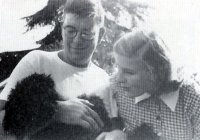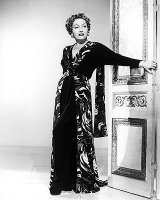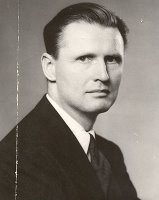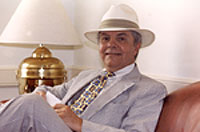 It's fairly well known that WRA has a number of alumni who are active either on Broadway or in Hollywood as actors, producers, writers, or directors. But not many know that Donald M. "Mac" Marshman '41 actually won an Oscar in 1951 for the screenplay for Sunset Boulevard, one of the most celebrated movies in American film history.
It's fairly well known that WRA has a number of alumni who are active either on Broadway or in Hollywood as actors, producers, writers, or directors. But not many know that Donald M. "Mac" Marshman '41 actually won an Oscar in 1951 for the screenplay for Sunset Boulevard, one of the most celebrated movies in American film history.Ten years earlier at WRA, Marshman won accolades for Mixed Company, a musical comedy he had both written and directed. It was later said that Mac took more curtain calls than any of the players themselves. He went on to Yale where he wrote a column for the Yale News. He graduated in 1944 and joined Life magazine where he worked in several departments before being named movies editor. After two years at that post, he went on to other assignments, then moved over to Time magazine where he continued to review films.
In 1948 Billy Wilder and Charles Brackett invited Marshman to Hollywood. He left Time and joined the writing team as a full collaborator. The three men devoted a year to writing the story and screenplay for Sunset Boulevard featuring Gloria Swanson and
 William Holden in the lead roles. At the Academy Awards ceremony in March 1951, all three writers took home a gold statuette when Sunset Boulevard won for best screenplay. Marshman worked on several other films for both Paramount and RKO Pictures.
William Holden in the lead roles. At the Academy Awards ceremony in March 1951, all three writers took home a gold statuette when Sunset Boulevard won for best screenplay. Marshman worked on several other films for both Paramount and RKO Pictures.The talented writer eventually returned east to be closer to both New York City and Yale University. He and his wife, Ann, became parents to four children. Marshman now lives in retirement in Darien, Connecticut.
A couple of years ago, a screenwriters' group put Sunset Boulevard
 near the top of the list of the 100 best American films. During February the Cleveland Institute of Art's Cinematheque will host a series of "Screen Gems" in its film classics program. The picture selected to kick off that series is the one that WRA's D. M. Marshman helped to write. "Tell Mr. De Mille that I'm ready for my close-up," says Norma Desmond (Gloria Swanson) at the end of this unforgettable film. It's reassuring to know that this screen classic still ranks up there with the very best.
near the top of the list of the 100 best American films. During February the Cleveland Institute of Art's Cinematheque will host a series of "Screen Gems" in its film classics program. The picture selected to kick off that series is the one that WRA's D. M. Marshman helped to write. "Tell Mr. De Mille that I'm ready for my close-up," says Norma Desmond (Gloria Swanson) at the end of this unforgettable film. It's reassuring to know that this screen classic still ranks up there with the very best.



